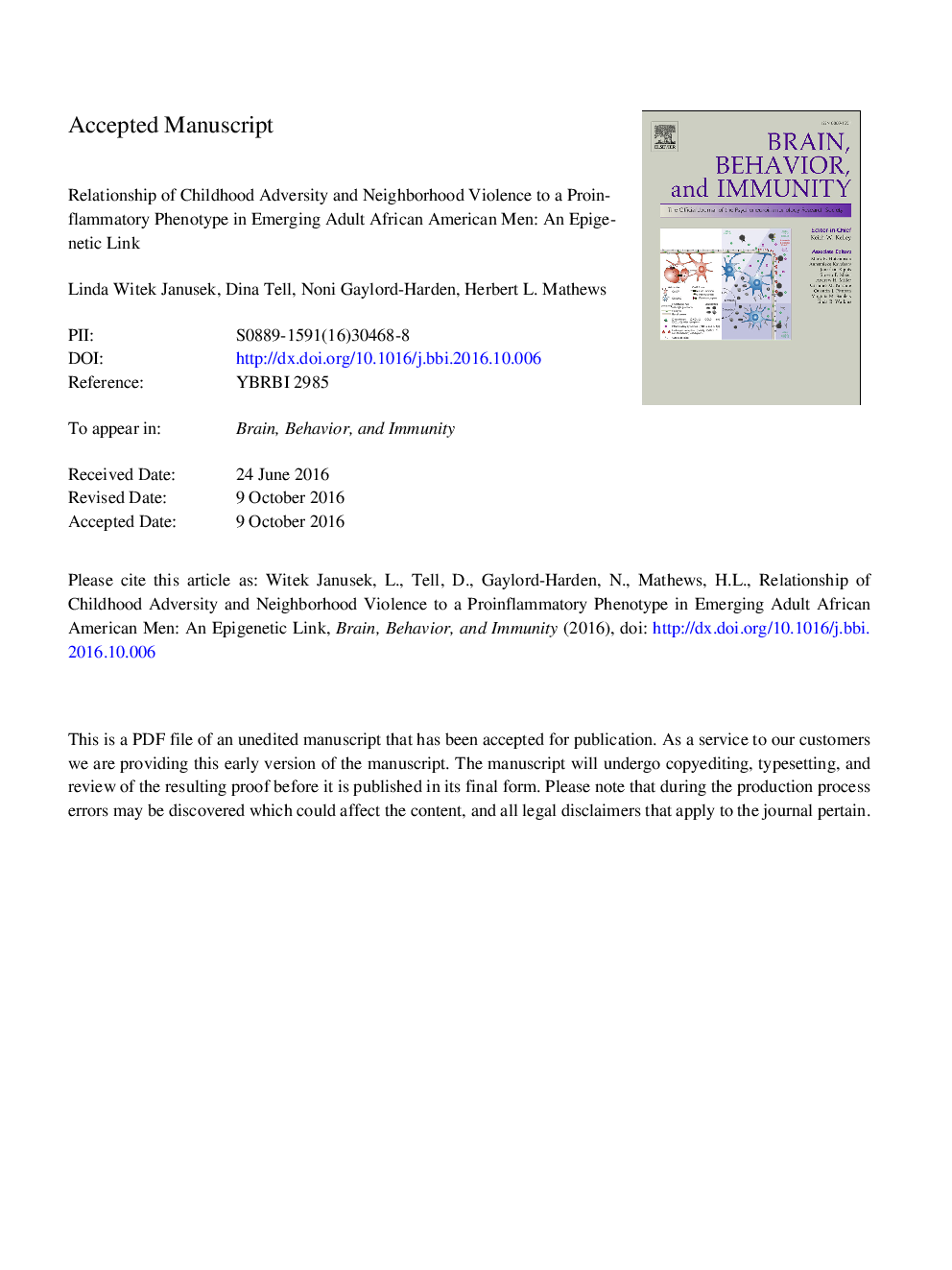ترجمه فارسی عنوان مقاله
رابطه ناهنجاری دوران کودکی و خشونت محله به یک فنوتیپ پیش آگهی در مردان بالغ آمریکایی آفریقایی آمریکایی ظهور: پیوند اپی ژنتیکی
عنوان انگلیسی
Relationship of childhood adversity and neighborhood violence to a proinflammatory phenotype in emerging adult African American men: An epigenetic link
| کد مقاله | سال انتشار | تعداد صفحات مقاله انگلیسی |
|---|---|---|
| 121371 | 2017 | 48 صفحه PDF |
منبع

Publisher : Elsevier - Science Direct (الزویر - ساینس دایرکت)
Journal : Brain, Behavior, and Immunity, Volume 60, February 2017, Pages 126-135

